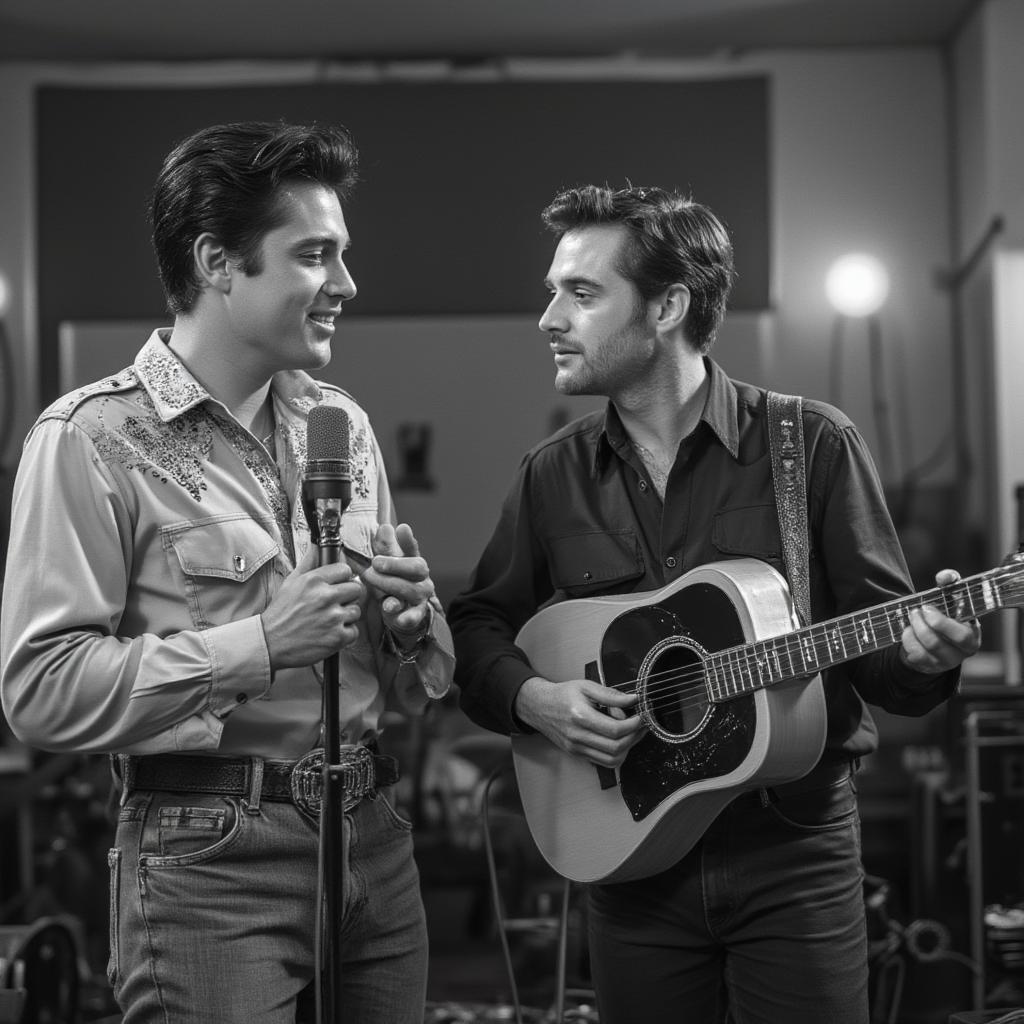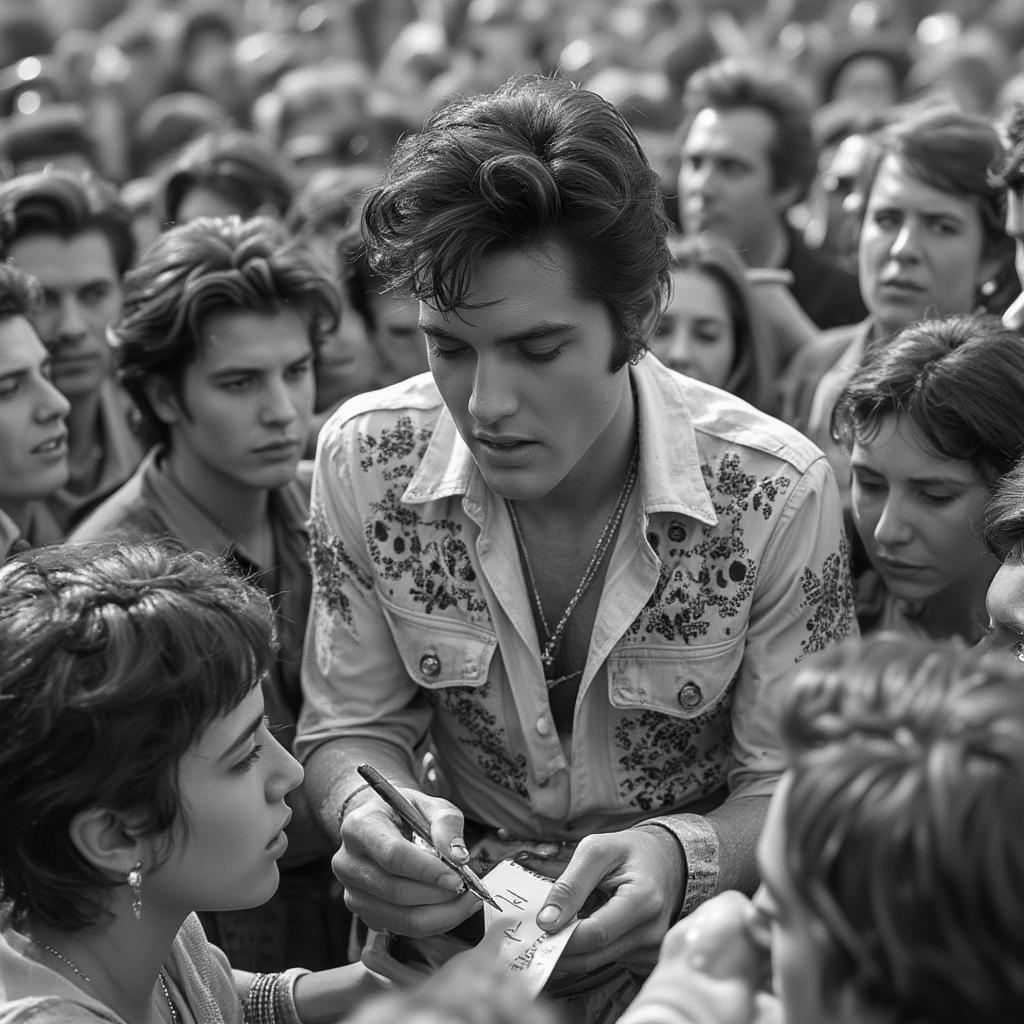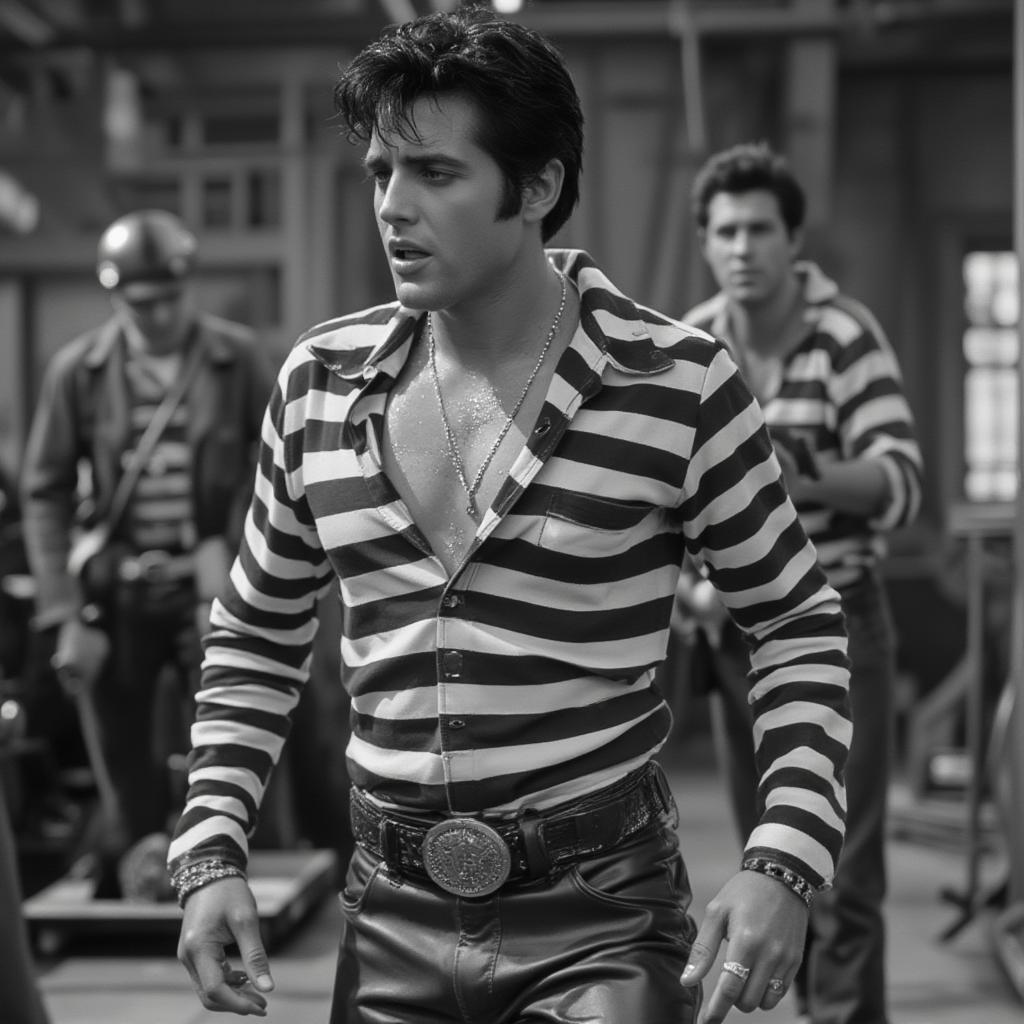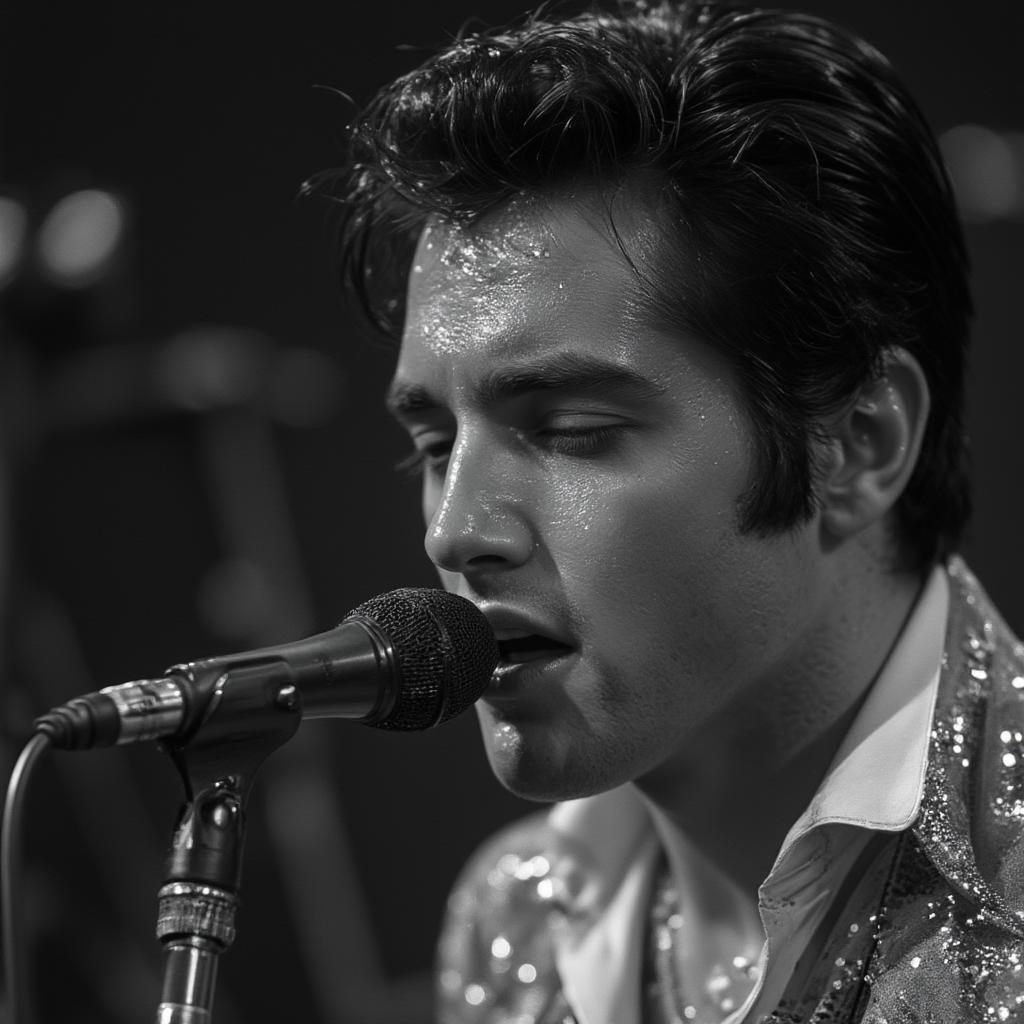Return to Sender: Deconstructing Elvis Presley’s Chart-Topping Hit

Elvis Presley’s “Return to Sender” is more than just a catchy tune; it’s a cornerstone of rock and roll history, a testament to the King’s unparalleled charisma and vocal prowess. Released in 1962, the song quickly climbed the charts, becoming a global phenomenon and solidifying Elvis’s position as a musical icon. This article delves into the fascinating story behind “Return to Sender,” exploring its origins, its impact on popular culture, and its enduring legacy as a timeless classic. The song’s simple yet powerful message of unrequited love resonated with audiences worldwide, making it an instant hit and a staple of Elvis’ live performances.
“Return to Sender” embodies the quintessential rock and roll spirit that Elvis Presley championed. Its driving rhythm, infectious melody, and Elvis’s dynamic vocals combine to create an electrifying listening experience that transcends generations. The song’s lyrics, detailing the frustration and heartbreak of a rejected love letter, are relatable and emotionally charged, further enhancing its appeal. The song’s success was not only a testament to Elvis’s talent but also to the songwriting prowess of Winfield Scott and Otis Blackwell, who penned this unforgettable hit. Want to explore more Elvis classics? Check out the best of elvis presley.
The Genesis of a Hit: Writing and Recording “Return to Sender”
The story of “Return to Sender” begins with its inspired writers, Winfield Scott and Otis Blackwell. Blackwell, already a renowned songwriter with hits like “Don’t Be Cruel” and “All Shook Up” for Elvis, collaborated with Scott to craft a song that perfectly captured the King’s unique style and vocal range. Drawing inspiration from a real-life experience of a returned letter, they constructed a narrative of romantic rejection infused with humor and resilience. The song’s distinctive “bop-a-lula” backing vocals, a hallmark of Elvis’s early recordings, add a playful touch to the otherwise melancholic theme. The songwriting duo meticulously crafted the lyrics and melody, ensuring the song would resonate with Elvis’s audience while showcasing his vocal talent.
The recording session for “Return to Sender” at Radio Recorders in Hollywood was a testament to Elvis’s professionalism and musical intuition. He effortlessly imbued the song with his signature swagger and emotional depth, capturing the narrator’s frustration and determination in every note. The band, featuring Scotty Moore on guitar, D.J. Fontana on drums, and Dudley Brooks on piano, provided a tight and energetic backing that perfectly complemented Elvis’s vocals. “Return to Sender” became a prime example of the magic that happened when talented musicians came together in the studio. Elvis’s energetic performance in the studio translated seamlessly onto the record, resulting in a track that exuded raw energy and emotion.

“Return to Sender” and Its Cultural Impact
Upon its release, “Return to Sender” quickly ascended the music charts, reaching the number two spot on the Billboard Hot 100 and topping charts internationally. The song’s popularity transcended geographical boundaries, becoming a global anthem for anyone who had experienced the sting of unrequited love. It’s also noteworthy to understand the context of Elvis’ career during the early 60s. To delve deeper into this era, explore elvis songs from the 50s and 60s.
The song’s influence extended beyond the music industry, permeating popular culture and leaving an indelible mark on society. The phrase “return to sender” entered everyday language, becoming a common expression for rejected or undeliverable items. The song’s themes of persistence and resilience in the face of rejection resonated with audiences of all ages and backgrounds, contributing to its enduring popularity. “Return to Sender” became more than just a song; it was a cultural phenomenon that reflected the universal experience of heartbreak and hope.
The Enduring Legacy of a Rock and Roll Classic
Decades after its release, “Return to Sender” remains a beloved classic, continuing to captivate listeners with its timeless charm. The song’s enduring appeal lies in its universal themes, infectious melody, and Elvis’s unforgettable performance. It has been featured in numerous films, television shows, and commercials, solidifying its place in the cultural lexicon. You can find a curated list of Elvis’s top hits at elvis presley the 50 greatest hits songs.
“Return to Sender” serves as a reminder of Elvis Presley’s immense talent and his enduring influence on music and popular culture. It stands as a testament to the power of a well-crafted song to connect with audiences on an emotional level and to transcend the boundaries of time and culture. The song continues to inspire new generations of musicians and fans, ensuring that Elvis’s legacy will live on for years to come. Let’s explore some commonly asked questions about this iconic song. To listen to this timeless classic, click here: play return to sender by elvis presley.
Why is “Return to Sender” considered a rock and roll song?
The driving rhythm, prominent backbeat, and Elvis’s energetic vocals firmly place “Return to Sender” in the rock and roll genre. These elements, combined with the song’s themes of love and heartbreak, perfectly embody the spirit of early rock and roll.
What is the meaning behind the lyrics of “Return to Sender”?
The lyrics depict the frustration of a rejected lover whose letters are repeatedly returned. The song explores themes of unrequited love, persistence, and the eventual acceptance of rejection.
Was “Return to Sender” inspired by a true story?
While not directly based on Elvis’s life, the song’s concept was inspired by a returned letter incident involving one of the songwriters. This real-life element added to the song’s authenticity and relatability.
How did “Return to Sender” impact Elvis Presley’s career?
“Return to Sender” further solidified Elvis’s status as a global superstar. The song’s commercial success and enduring popularity contributed to his already impressive musical legacy. Want to explore a live performance from this era? Check out elvis presley elvis recorded live on stage in memphis.

Who wrote “Return to Sender”?
The song was written by Winfield Scott and Otis Blackwell, a prolific songwriting duo who contributed significantly to Elvis’s musical repertoire.
In what movie did Elvis sing “Return to Sender”?
The song was prominently featured in the 1962 Elvis Presley film “Girls! Girls! Girls!” The film’s storyline integrated the song seamlessly, further enhancing its popularity.
Conclusion: Return to Sender – A Timeless Masterpiece
“Return to Sender” is more than just a song; it’s a cultural touchstone that continues to resonate with audiences worldwide. Its timeless message of unrequited love, combined with Elvis Presley’s iconic performance, has ensured its place in music history. The song’s impact on popular culture is undeniable, solidifying its legacy as a true rock and roll classic. Whether you’re a lifelong Elvis fan or a new listener discovering his music for the first time, “Return to Sender” is guaranteed to leave a lasting impression. Explore the magic of Elvis Presley and rediscover the joy of this enduring hit.
Frequently Asked Questions about “Return to Sender” by Elvis Presley
- When was “Return to Sender” released? 1962
- Who wrote the song? Winfield Scott and Otis Blackwell.
- What is the song about? A man sending letters to his lost love, only to have them returned.
- What movie featured the song? Girls! Girls! Girls!
- Did “Return to Sender” reach number one on the charts? It reached number two on the Billboard Hot 100.
- What is the significance of “Return to Sender” in popular culture? The phrase entered everyday language, signifying rejected or undeliverable items.
- What musical genre is “Return to Sender”? Rock and roll.
- What makes “Return to Sender” so memorable? The catchy melody, relatable lyrics, and Elvis’s charismatic performance.
- Where can I listen to “Return to Sender”? Streaming services, online music stores, and the “Welcome Shock Naue” Website.




